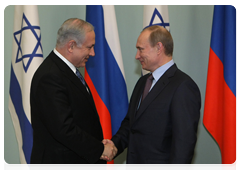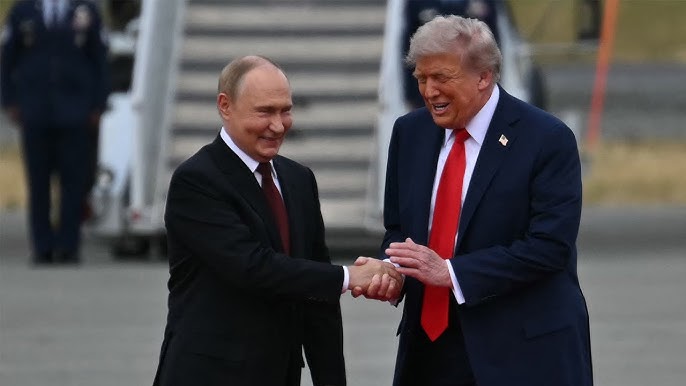How Noam Chomsky Betrayed the Syrian People

By Sam Hamad
The noted critic of Israel, Norman Finkelstein, once wrote that it was a rite of passage for “left apostates,” namely those who had allegedly abandoned their leftist principles, to criticize Noam Chomsky. As Finkelstein observed, Chomsky “mirrors their idealistic past as well as [their] sordid present, an obstinate reminder that they once had principles … that they sold out but he didn’t.”
In some sense, this is true. Noam Chomsky is a political rock, unchanged by the elements and unaltered by time, no matter how powerful the tidal waves of change crashing against his worldview. While there is no doubt Chomsky’s politics arose from genuine, much-needed dissent against U.S. foreign policy in the post World War II era, the stasis that defines his approach has left him unable to reckon with the Arab Spring’s complexities and contradictions.
Chomsky’s stance on Syria is the clearest example of this. As he stated during a talk at Harvard in September 2015, and as he has repeated during other interviews, Chomsky believes the idea of conducting a humanitarian intervention in Syria is a red herring. Just about “every use of force is called humanitarian intervention” and almost always intervention is not humanitarian at all and is, in fact, “in the interest of those carrying out the force,” Chomsky said. From his point of view, in intervening in Syria, the United States has done little other than support the forces that are creating and sustaining the country’s “jihadist” movement.
While those who support Chomsky’s position on Syria may label supporters of the revolution, like myself, as “neoconservatives” or “pro-imperialists,” they are, in fact, more deserving of these epithets themselves.
The Contours of Chomsky’s Views on Syria
During his September 2015 Harvard lecture, Chomsky was asked whether Russia’s deployment to Syria was imperialistic. In response, Chomsky repeated the capricious claim that the entire Syrian opposition is either part of the Islamic State (ISIS) or some variant of al-Qaeda.
As even the most casual observer of the Syrian conflict knows, however, this claim is false. A major contingent of Syria’s rebel forces is not “jihadist” in any sense. Even among those who are Islamist, many support a democratic government, in some form, and are more similar to Hamas than ISIS or al-Qaeda.
Instead of reckoning with these and other realities of the Syrian revolution, Chomsky has tacitly endorsed the logic of the “war on terror,” accepting the view that allying with dictatorships in order to defeat terrorism is perfectly ok.
In a recent interview with Al Jazeera, for instance, Chomsky was asked whether he would support the United States if it joined with the Assad regime, in order to fight against ISIS. While he described Assad as “monstrous” (an admission which makes his conclusion even worse), Chomsky claimed it would be impossible to “fight both [ISIS and the Assad regime] … it’s incoherent.”
This comment is especially stunning since the Assad regime has actively promoted ISIS’s rise. As Dominic Tierney explained in The Atlantic:
Assad benefits from the inherently polarizing nature of civil war, as a cycle of atrocities and revenge pushes all sides to the extreme. He has further spurred radicalization by focusing the regime’s fire on moderate enemies, while reportedly releasing jihadists from jail and purchasing oil from ISIS.
In 2014, during the height of ISIS’s expansion, Assad and his allies attacked the group only 6% of the time, while 64% of ISIS attacks were against the Syrian rebels. There have also been numerous cases in which ISIS and Assad’s forces have effectively been allied, with Russian airstrikes often aiding, instead of hindering, the group.
Clearly, the Syrian regime’s sectarian slaughter, backed by Iran and its proxy militias, has generated unprecedented support for ISIS, making Chomsky’s support for an anti-ISIS alignment with Bashar al-Assad ironic at best and unsupportable at worst.
Chomsky’s Motives
In an interview with Jacobin, Chomsky provides a glimpse into the deeper reasons behind his views on Syria. In response to a question asking for his thoughts on the West’s bombing efforts against ISIS, Chomsky noted that the “sectarian conflicts that are tearing the region to shreds are substantially a consequence of the Iraq invasion.”
For Chomsky, as well as much of the left, the United States’s perceived proximity to the conflict (or the pathological belief that the United States is responsible for the devastating war) has alternatively shaped indifference to and hostility toward the Syrian revolution. In other words, because the United States is against the Assad regime, the left feels compelled to either ignore the revolution all together, or oppose the regime’s enemies.
In his case, Chomsky has expressed ideological disdain for revolutionary forces by supporting their complete annihilation. In the same interview with Jacobin, Chomsky said the outcome in Syria could be “just as bad [as an ISIS victory] if the jihadi elements supported by Turkey, Qatar, and Saudi Arabia are the victors.” His statement amounted to tacit approval for the brutal war being waged against these so-called “jihadi elements” by Russia, Iran, and Assad.
But, as other statements by Chomsky make clear, when it comes to the Syrian conflict, he is more than happy to call for “imperialist intervention” where it supports so-called leftist groups. In the Al Jazeera interview, Chomsky openly expressed support for U.S. airstrikes on behalf of “the Kurds.” For leftists, Chomsky included, the “Kurds” is synonymous with the Kurdistan Workers Party (PKK) or their Syrian branch, the Democratic Union Party (PYD), which controls the region of Rojava in the north of Syria, near the Turkish border. While Chomsky has used humanitarian arguments to justify these airstrikes, he also told Jacobin that the PYD “seem[s] to be developing, as well as you can under these conditions, a fairly decent society, very different than anything else in Syria … they certainly merit support.”
The implications of Chomsky’s statements are clear. With almost 250,000 Syrians dead [actually well over 500,000] and 13 million more displaced by the Assad regime and its allies, only “the Kurds” deserve special attention. Similarly, while a Syrian Arab (or even a Kurd who lives in rebel-held Aleppo) is not worthy of support, those who live in and around PYD areas somehow are.
But, the fate of Syrians in rebel-held locations ought to inspire alleged progressives, like Chomsky, to express, not withhold, their solidarity and support. In many of these areas, revolutionary, democratic Local Coordination Committees have taken over the reigns of government, providing critical public and social services, and providing people with their first experience of genuine freedom of expression.
Admittedly, the rebels are by no means perfect, but in every area they govern, the very worst of them have proven to be better than the dynastic tyranny of the Assad regime. This is why the inhabitants of these areas leave when regime forces approach. It is also why the vast majority of refugees are fleeing from ISIS and Assad, but not from the rebels.
The Conservative Left
In the past, Chomsky’s political stasis seemed virtuous to me. In light of his position on the Syrian revolution, however, it has become dismally clear that a one-dimensional, moralistic politics is (and always has been) an expression of conservatism running through the left.
Though Chomsky and the wider left might not appreciate this, the part they are playing in Syria’s counter-revolution is discrediting leftism. In this way, their actions are comparable to those “socialists” who destroyed the left for generations because of a blind loyalty to the nightmare of Stalinism.
Sadly, the conservative, orientalist, and incoherent stance on Syria expressed by Chomsky and his supporters is symptomatic of a leftism that has no reason to exist beyond the narrow parameters of its own subculture.
Published by Muftah.org on April 6, 2016










